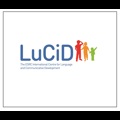
A new LuCiD study offers valuable insights into how children’s early language abilities influence their reading development as they move from preschool into primary school. Children show considerable variation in early reading skills during the first years of formal education, and this study highlights how foundational language skills—particularly vocabulary and grammar—play a crucial role in shaping those outcomes.
The research, conducted by LuCiD colleagues Lana S. Jago, Padraic Monaghan, Katie Alcock, and Kate Cain, involved a comprehensive meta-analysis of 72 longitudinal studies, encompassing data from 23,387 children. This large-scale analysis examined how preschool vocabulary and grammar predict three key aspects of early reading development: reading comprehension, word reading, and pseudoword reading.
The results showed that both vocabulary and grammar in the preschool years had significant, moderate effects on all three aspects of early reading. These effects were consistent regardless of whether language skills were measured using receptive or expressive assessments, or how complex the response requirements were. Notably, the time interval between the preschool language assessments and the school-age reading measures did not affect the strength of these relationships, demonstrating the stability of early language skills as predictors of reading success.
One particularly interesting finding was that the age at which formal schooling begins moderates the relationship between preschool vocabulary and later word reading. Specifically, vocabulary had a greater impact on word reading when formal instruction started earlier, suggesting that strong language skills are especially beneficial when children encounter reading instruction at a younger age.
While it is well established that early language skills are important for later academic success, this meta-analysis provides robust evidence on the specific ways vocabulary and grammar shape different aspects of reading development. The findings underscore the importance of supporting oral language development before children begin formal reading instruction, particularly in contexts where early reading demands are high.

